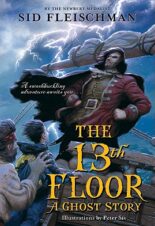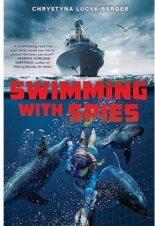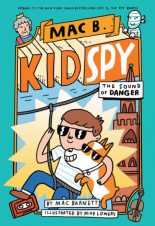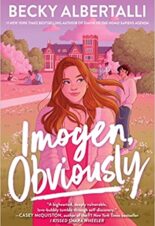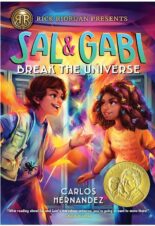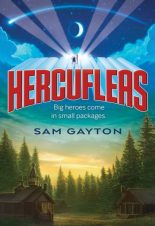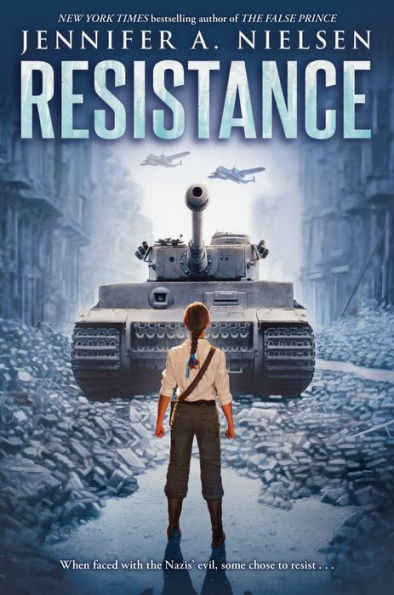
Buy This Book
“It was a reminder that hatred runs deeper and wider than a single race or nationality, and if love was not stronger, hatred would run through the generations. I intended to be stronger,” Chaya. —Resistance
Resistance
by Jennifer A. Nielsen
AR Test, Must Read
10+
Score
5.8
400
Chaya Linder is living in Nazi-occupied Poland. Her Jewish family is in danger. Her sister is deported to one of the camps and her brother disappears. After losing their two children, Chaya’s parents have given up hope. In an effort to make a difference, Chaya becomes a courier and travels between the ghettos of Poland. She takes lifesaving supplies like forged papers and food. Sometimes, she even smuggles out children.
When Chaya joins a resistance cell, she hopes to use the Nazis’ supplies to help her people. When a mission goes wrong, most of Chaya’s network is killed or captured. Alone, with nowhere to go, Chaya isn’t sure what to do. When Esther, a former member of her cell, appears, Chaya begins a journey to the Warsaw Ghetto where a large uprising is being planned. Chaya is determined to save as many lives as possible, even if she loses her own life. Her only desire is to live or die with honor.
Told from Chaya’s point of view, Resistance gives the reader a grim picture of the persecution Jews received during World War II. The story begins with suspense, which continually builds as Chaya survives her ordeals, while many of the other resistance members are killed. Many of the events are violent, and although they are not described in bloody detail, death is common. Although the publisher recommends the book for ages 8-12, the descriptions of death and torture would make this a difficult book for younger readers.
As Chaya’s world crumbles around her, the reader gets a better understanding of why some Jews did not fight back. Some of the Jewish people were so overcome by fear, or some didn’t believe the stories of the death camps, so they didn’t fight back. Others refused to fight because they believed that killing was wrong—even if they were fighting to save their own life. Several times in the story, the characters discuss the morality of killing the Nazi soldiers. In the end, the story makes it clear that leaving the Ghetto in order to survive, or staying in the Ghetto are both valid choices. “We’ll all die one day, no one escapes that fate. Our only decision is how we live before that day comes. Our path requires courage, but so does theirs. Both paths are ways to resist.”
As Chaya and Esther travel to Warsaw, they meet people from all lifestyles and religions. This helps the reader understand people’s different responses to the Jews. Some of the Poles ignored the problem, while others took advantage of the Jewish people, and even physically attacked them. Yet, there were still many Poles that risked their lives to help save the Jews. In the end, the story shows that there were evil people as well as good people who were willing to die fighting.
Resistance ends with the events of the Warsaw Uprising, which gives the reader a vivid description of the death of many civilians, and resistance fighters. The cruelty of the Nazis and the heroic deeds of the Jews are depicted. Although the story gives a historic perspective, sensitive readers may be upset by the death the surrounds Chaya and the Jewish people. Resistance ends with a list of the historical resistance fighters who fought for their people and should be considered heroes.
Sexual Content
- None
Violence
- Chaya’s father is stopped by a Polish police officer who, “ripped out pieces of my father’s beard, one fistful at a time. With every tear, my father grunted with pain, but he said nothing and offered no form of resistance. The crowd that had gathered pointed at him and laughed, as if humiliation and pain were some kind of joke.”
- Chaya and some others were stealing provisions from a train car when “a gunshot rang through the night and Jukub yelped with pain.” Charya shot a Nazi soldier who was “running toward us with his pistol out, shouting for his comrades.”
- The resistant fighters attack a café. One threw a grenade through the window. Soldiers, “began to emerge, many with obvious cuts on their faces or uniforms. They became the target of my first grenade. . . My third went inside the café and exploded with enough force to blow some of the bricks off the building.” The surviving Nazis began shooting, and Chaya “saw bodies in civilian clothes fall.”
- Some of the resistance fighters who survived were sent to Montelupich Prison were, “If the Draengers were there, then they had experienced torture worse than anything I could imagine, and even what I could picture turned my stomach. They would be kept at the edge of death in an attempt to make them talk.”
- While in a ghetto, Esther drops potatoes, and “two desperate women suddenly became five, and then all of them fought for anything that was left. To get it off Esther’s shoulders, one woman knelt on her back. They were suffocating Esther, but the only thing that seemed to be in their vision was the bag.”
- When Chaya and Esther are trying to escape from a ghetto, a boy who is helping them is shot. “Henryk hadn’t yet shut the window before a bullet caught him from behind. He fell forward across the windowsill. . .”
- When Esther is hiding in a barn, the Gestapo finds her. “Ester was hit again and probably knocked unconscious, because she made no other sounds.”
- In order to create a distraction and save Esther, Chaya cuts the gas line to the Nazi’s trucks and then lights the gas on fire. The gas, “immediately ignited a booming fire that popped the truck’s hood open and set the engine aflame . . . The last truck exploded into the air with a booming sound that would be heard for kilometers around.”
- When Chaya found Esther, she was tied to a tree’s trunk. When Chaya got closer, “I noticed the bruise was even worse than it appeared from a distance. There was a cut on her cheek too, and other smaller bruises on her neck and probably elsewhere that I couldn’t see.” Esther’s arm was injured as well.
- Esther recounts what the Gestapo did to her. She was put in a dark room, and “someone slapped me or hit me to get my attention, and they were telling me what would happen if I didn’t talk.”
- The end of the story focuses on the Warsaw uprising, the description of the battle is told over ten chapters. The resistance fighters throw Molotov Cocktails on the soldiers. When the first explosives were thrown, “bodies fell, and the troops who survived it scattered.” During the battle, Esther threw a “fuel-filled wine bottle” onto a tank, and “the top hatch burst open like a popped cork. Flames shot from within the tank.”
- During the battle, the Nazis “found the hospital. . . They killed everyone inside. Revenge for our fighting.” How the patients died was not described, but Chaya thinks, “I didn’t want to know, or think about it.”
- The Nazis have a long-barrel machine gun that they use to kill the Jews. A sniper killed the gunner, “who kneeled over his gun, dead.” Chaya throws a grenade at the vehicle and “the explosion knocked me off my feet.”
- The Germans escorted civilians and “each was placed on their knees, row by row by row. . . A fighter rose from her knees with a gun. . . She took aim at one of the commanding officers and fired, hitting him squarely in the chest.” Then an officer “gave the order to shoot and every Jew on the street was killed.”
- Chaya is shot in the leg. When she looks at the wound, she “saw blood spurting from my thigh, almost like everything was happening in sudden slow motion.”
- When a SS officer sees Chaya, “his hand unfolded, revealing a grenade. . . He pulled the pin and raised his arm to throw it. Then a bullet whizzed past my ear, hitting the grenade itself, which exploded in his hand.”
- German soldiers would throw poison gas grenades into the sewer system, just in case Jews were hiding in there. As Chaya and a group were trying to escape, poisoned gas was thrown into the sewer, and “Then I heard a splash, and in the light beneath the manhole, I saw Mr. Pilzer’s body go down. He didn’t fall like a dead body would. Instead, he used himself as a shield from the gas, deliberately spreading out his clothes to contain as much of the smoke as possible.”
- Esther intentionally leads a soldier away from a group of Jews. “A few minutes later, the silent darkness was broken by a single shot fired inside the sewer line.”
Drugs and Alcohol
- Several times during religious services, people passed around wine.
- Chaya thinks that on Adolf Hitler’s birthday, he probably had, “a hearty slice of birthday cake to go with a glass of wine.”
Language
- None
Supernatural
- None
Spiritual Content
- As Chaya and Esther were hiding from Nazi soldiers, Chaya was upset that Esther did not do a better job as a lookout. Chaya thought, “Even God wouldn’t expect me to forgive her.”
- During Shabbat, Chaya, “covered my eyes with my hands, giving myself a private moment with God to ask for healing, happiness, and prosperity.”
- Chaya and Esther are about to take a trip, and Esther thinks the snow is a warning. Esther said, “Maybe God is telling us to wait one more evening.” Chaya replies, “Maybe God is offering to cover our tracks if we hurry.”
- One of the characters tells Chaya, “The greater our need, the nearer our God, no?” A boy replies, “And God is very near now.”
- Chaya asks a group of teens if they will try to escape the ghetto. A boy tells her, they will remain because “We’ve given our lives to God. Whatever happens to us now is alright.” The group discusses the moral implications of staying or trying to escape to fight. One of the group members tells Chaya, “The highest honor we can give God is to die in His name.” Another character said, “Defending one’s life in the moment is allowed. But killing them is different. That’s murder!”
- Chaya and Esther discuss their belief in God and his promises. Chaya said, “I believe in God’s promises. . . But I’ve run out of patience waiting for them. I believe in God’s laws, but. . .” They also discuss if killing Nazis is murder. One of Chaya’s friends believed that “God has given us the right to defend ourselves.”
- When Chaya and Esther miss Shabbat, Ester is upset. Chaya tells her, “God will understand, Esther! He understands why we missed Shabbat, and why I wear the crucifix. He understands the gun inside my bag, and if I have to use it again, then I hope He will understand that too . . .”
- The evening before Passover, a group discussed God. One of the men, Tamir, gave encouraging words, “Didn’t Moses once say to our people, ‘Be strong and courageous! God is the one Who goes with you.” Chaya thinks that Tamir was “giving praise and honor to a God who might not save him from his fate. But he did so, confident that this coming fight was worthy of God’s blessings.”
- Esther found a belt buckle in one of the Nazi soldier’s bags. The buckle had an “eagle standing on top of the Nazi swastika” with the words “God With Us.” Chaya thinks about how the Christians are beginning to prepare for Easter. She thinks, “how could these soldiers commit such atrocities on this day, all while wearing an emblem that suggested God supported their actions?”
- An escaped prisoner tells Chaya, “Hitler wants no Gods other than himself.”
“It was a reminder that hatred runs deeper and wider than a single race or nationality, and if love was not stronger, hatred would run through the generations. I intended to be stronger,” Chaya. —Resistance
Latest Reviews

Driven

Goodbye Days

Blood of Troy

Will’s Race for Home

Animal Superstars: And More True Stories of Animal Talents

Temple of Secrets

Lifeboat 5

Rock ’n’ Goal

Dogku

